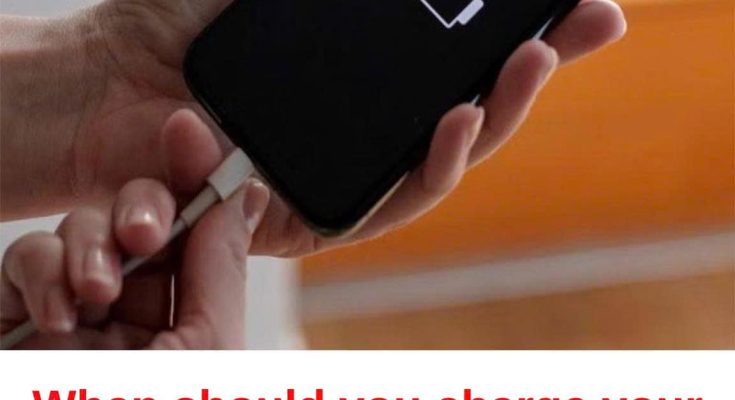When Should You Charge Your Phone?
One of the most common questions among smartphone users is: when is the best time to charge your phone? While opinions may vary, experts and tech enthusiasts generally agree on one crucial point—don’t wait until your phone’s battery is below 5% to plug it in. Allowing the battery to drain to extremely low levels or letting your phone shut down completely before charging can harm the battery’s health over time. This practice may cause the battery to “die” prematurely, making it difficult to charge during subsequent attempts.
Most modern smartphones are equipped with lithium-ion (Li-ion) batteries, which are far more efficient than older battery technologies. With Li-ion batteries, you can charge your phone at any point without damaging the battery. In fact, it’s better to avoid letting the battery level dip too low. Even if your phone’s battery is at 30% or 40%, it’s perfectly fine to plug it in. Unlike older batteries, Li-ion batteries don’t require you to wait until they are nearly empty to charge.
Another myth about charging is that you must wait until the battery reaches 100% before unplugging it. Thankfully, this is not true for modern smartphones. Li-ion batteries have built-in safeguards that automatically stop charging once the battery reaches full capacity. This feature protects your phone from overcharging, so you don’t need to worry about unplugging it at an exact percentage.
Tips for Proper Phone Charging
To ensure your phone’s battery remains healthy and performs optimally, you need to adopt some smart charging habits. Here are practical tips to help you get the most out of your smartphone’s battery:
- Avoid Using Your Phone While Charging
Using your phone during charging can generate excessive heat, which is detrimental to battery health. Overheating not only shortens the battery’s lifespan but can also impact your phone’s overall performance. If you must use your phone while it’s charging, limit activities to lighter tasks like checking notifications or replying to messages. Avoid heavy usage, such as gaming or streaming videos, during this time. - Turn Off Unnecessary Features
When charging, turning off unnecessary features can help improve efficiency. Disable WiFi, mobile data (3G/4G/5G), and Bluetooth if they’re not needed. These features consume additional energy, which can slow down the charging process and cause the phone to heat up. - Adjust Screen Brightness
Your phone’s display is one of the largest power drains. To speed up charging and reduce battery stress, set your screen brightness to a lower or medium level. Additionally, adjust your screen timeout settings so the display turns off after 10-15 seconds of inactivity. This simple adjustment can significantly improve charging efficiency. - Close Background Applications
Many apps run in the background, consuming power even when you’re not actively using them. Before plugging in your phone, close unnecessary background applications. This reduces the energy demand on your battery, allowing it to charge more effectively and without overheating. - Use Original Chargers
While it might be tempting to use an inexpensive off-brand charger, doing so can jeopardize your phone’s battery health. Non-original chargers often lack proper voltage regulation, which can damage the battery over time. Always use the charger provided by the manufacturer or a reputable replacement to ensure consistent and safe charging. - Avoid Frequent Deep Discharges
Constantly letting your battery drain completely is a common mistake that can lead to long-term damage. Deep discharges make it harder for the battery to hold a charge and may even cause it to fail to recognize the charger. To avoid this, try to maintain your phone’s battery level between 20% and 80% most of the time.
Why These Charging Habits Matter
Good charging habits are essential for preserving your phone’s battery health and extending its lifespan. While modern Li-ion batteries are more durable and reliable than their predecessors, they still require proper care to perform at their best. By avoiding overheating, minimizing deep discharges, and using quality chargers, you can keep your phone’s battery running smoothly for years.
Many people don’t realize that improper charging habits are a leading cause of battery degradation. Small changes, such as closing background apps or using the right charger, can make a significant difference in how well your phone performs over time. Moreover, practicing these habits can save you from the inconvenience of unexpected shutdowns or costly battery replacements.
Smartphone technology is continuously evolving, and so is the way we interact with our devices. By adopting these simple yet effective charging practices, you can ensure your phone stays reliable, efficient, and ready to support your daily needs. A healthy battery means fewer interruptions and a longer-lasting device—something every smartphone user can appreciate!



